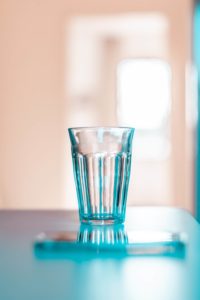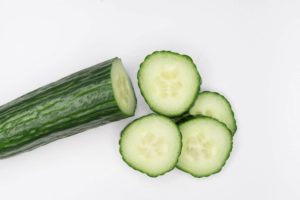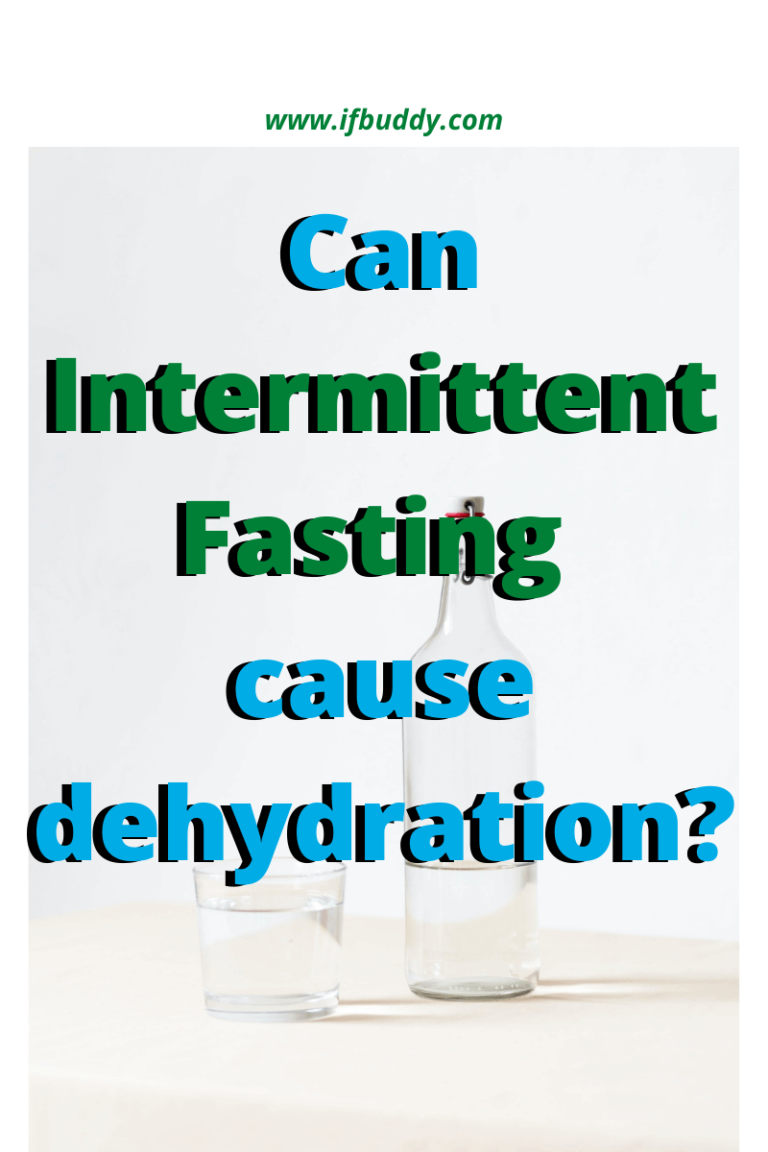Intermittent fasting has a lot of benefits for your health: it can help you maintain stable blood sugar levels, fight diabetes, lose weight, and make you feel better overall. But the fact that it has all these benefits, doesn’t mean it can’t have any side effects. A common question when it comes to these side effects is “can intermittent fasting cause dehydration?”.
The answer is yes, it can. Before you get scared, you should know that dehydration is usually a result of some mistakes people make when they start intermittent fasting, and they are easy to avoid and fix.
So let’s explore this topic and see when and why does intermittent fasting cause dehydration, how you can avoid it, and what to do if you get dehydrated.
Can intermittent fasting cause dehydration?
Yes, dehydration is sadly one of the side effects of intermittent fasting. It is not the fasting in and of itself that causes this issue, but a series of small mistakes you can make when starting out.
If you’ve done some reading on intermittent fasting, you probably saw there’s a lot of talk about what you should and shouldn’t eat, which foods break a fast and which don’t. However, there’s little talk about how you should consume fluids, especially water, during a fast.
Many people rely on caffeine in coffee (or flavored coffee) to get through a long fast. While this isn’t necessarily an issue, the problem is that caffeine is a known diuretic. In other words, it can lead to dehydration.
Another problem is that you are removing a lot of foods. Believe it or not, the foods you eat contain a percentage of water that also contribute to dehydration. Fruits and vegetables for instance have a natural water content, while others, like oatmeal, retain water while they are cooked. By removing 1-2 meals from your day, you’re reducing the number of liquids you get from food.
You’re probably underestimating the amount of water you should be drinking while fasting. Firstly, you’re removing liquids by removing certain meals. Secondly, you may be drinking more coffee or tea to curb your appetite. Thirdly, if you’re also exercising, you’re losing even more liquids through sweat. You need to compensate for all these issues by drinking more water than you normally would.
How can you prevent dehydration during intermittent fasting?
1. Drink more water
The simplest way to prevent dehydration is to drink more water. How much? More than you think. The 8 recommended cups a day will be too little for most people doing intermittent fasting. So this is a bare minimum you must reach during the day.
If you drink coffee, make sure to add at least one cup of water for each cup of coffee you drink. If you drink tea, you have it easier, but some teas can have the same diuretic effect.
Workouts need more water. Make sure you have at least 1-2 cups after an intense workout and drink as needed while you exercise.
Another key step: don’t wait until you feel very thirsty. By that point, you’re already dehydrated!
2. Add electrolytes to your water
Drinking plain water is great, but sometimes you need an extra boost. After an intense workout, especially if you leave in a place with high temperatures and a humid environment, your electrolyte balance might be off. Fasting for extended periods of time, even without any workouts could also deplete your electrolytes, so replenishing them is a must. Why? Because electrolytes are responsible to maintain important functions in your body. Symptoms of low electrolytes include palpitations, headaches, muscle cramps, fatigue, and lightheadedness.
Sodium, potassium, zinc, calcium, and magnesium, are some essential electrolytes that help your muscles, bones, immune system, and more function properly. Extended fasts, with or without exercise, require supplementing with sodium, so add some salt to your water, or supplement with things like bouillon, if your fasting method allows it.
3. Eat foods high in water during your eating window
What you eat during your eating window will also contribute to keeping you hydrated. Try to include foods that are rich in water like citrus, watermelon, apples, cucumber, but also vegetables, including green leaves. Of course, the type of foods you eat might be influenced by your overall dietary restrictions, but if you can, aim to include as many of these foods in your diet as possible.
What happens if you’re dehydrated when intermittent fasting?
The signs of dehydration will vary from person to person and according to how severe the issue is. The first signs can be seen by checking your urine. When you’re properly hydrated, your urine will have a clear color. The darker the color, the more dehydrated you are.
In the next stages, you will most likely start experiencing the symptoms of low electrolytes, such as fatigue, lightheadedness, cramps, and more. The most severe cases could include losing consciousness and will require medical attention. However, most people should realize they are dehydrated well before that moment. The best thing you can do is to start drinking water, preferably with some electrolytes. Avoid foods and beverages that have a diuretic effect, including coffee, until your symptoms subside.
The bottom line
Can intermittent fasting cause dehydration? Yes, it can happen. The lack of foods, the caffeine (often in excess), or working out in a fasted state, are all things that put you at risk for dehydration while intermittent fasting. Preventing this is, however, fairly easy.
You’ll need to drink more water than the average recommendation of 8 cups per day. Add an extra cup for each cup of coffee and make sure to hydrate during and after an intense workout. Electrolytes should also be included if you fast for extended periods of time, exercise at high intensity, or leave in a place with hot and humid weather. During your eating window, make sure to have foods high in water, such as fruits, vegetables, or soups.
Finally, if you start experiencing symptoms of dehydration, such as dark-colored urine, fatigue, lightheadedness, muscle cramps, supplement with electrolytes, increase your water intake, and avoid diuretic foods and beverages.

